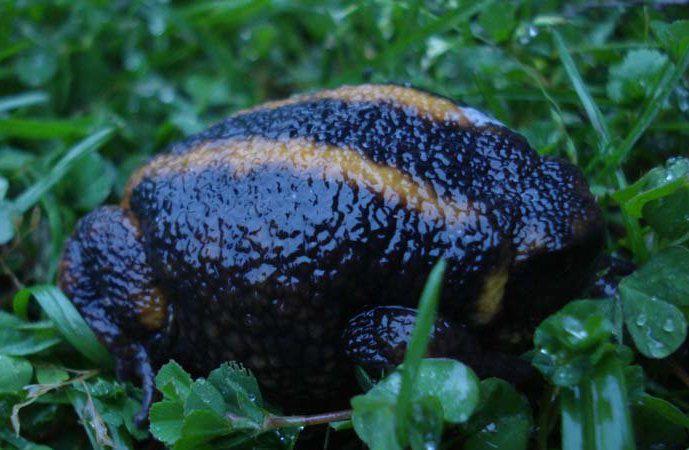Yared Debebe Desta
The project aims to address scientific activities which were suggested by the IUCN Red List (2013), and collate latest information on the ecology and conservation status of the two critically endangered frog species in Bale Mountains National Park for further assessment and actions.

Ethiopian short head frog.
Many of the Endemic amphibian species of Ethiopia are facing the risk of extinction due to the interference of man with nature. Two frog species namely Ericabatrachus baleensis and Balebreviceps hillmani are labeled critically endangered by the IUCN. Therefore, this project is intended to generate latest information on the Ecology and conservation status of the two species. We will determine the population size, distribution, and habitat association, prevalence of chytrid infection and identification of anthropogenic threats for the two species. Community based awareness creation programs through various means will also be an integral part of the study.
Survey and evaluation on the distribution, abundance and habitat association of the species in and out of their historic ranges will be conducted. Scrutinization of these ecological attributes will help in identifying the natural and anthropogenic threats exacerbating the loss of the species in particular the habitat at large. It is also aimed to investigate the effect of chytrid fungus on the population of the two species as a means to identify the level of threat posed due to the fungal infection. Since many conservation activities implemented in many places failed due to lack of participating the local people residing around the conservation sites, this projects make use of these people in every way possible.
Therefore, this project will fully engage in awareness creation programs to the local people and other stake holders through community based education program with the aim to develop a long term conservation strategy. Teaching and training of local park rangers and staffs, university students about long term population monitoring knowledge, skills and techniques, and develop their experience by participating in the field work will be an integral part of this project alleviating the scarcity of herpetologists to conduct amphibian researches.